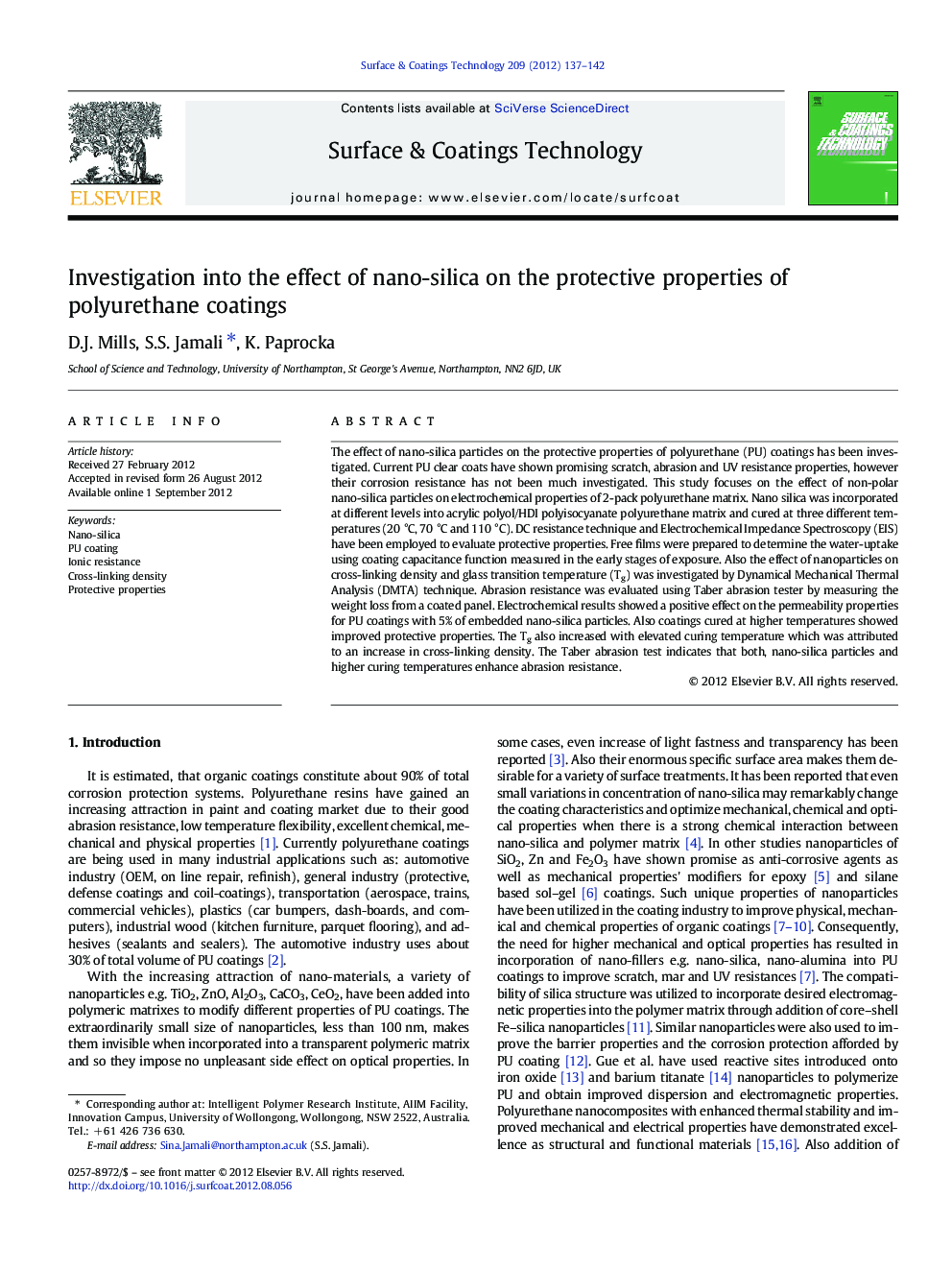| Article ID | Journal | Published Year | Pages | File Type |
|---|---|---|---|---|
| 1658348 | Surface and Coatings Technology | 2012 | 6 Pages |
The effect of nano-silica particles on the protective properties of polyurethane (PU) coatings has been investigated. Current PU clear coats have shown promising scratch, abrasion and UV resistance properties, however their corrosion resistance has not been much investigated. This study focuses on the effect of non-polar nano-silica particles on electrochemical properties of 2-pack polyurethane matrix. Nano silica was incorporated at different levels into acrylic polyol/HDI polyisocyanate polyurethane matrix and cured at three different temperatures (20 °C, 70 °C and 110 °C). DC resistance technique and Electrochemical Impedance Spectroscopy (EIS) have been employed to evaluate protective properties. Free films were prepared to determine the water-uptake using coating capacitance function measured in the early stages of exposure. Also the effect of nanoparticles on cross-linking density and glass transition temperature (Tg) was investigated by Dynamical Mechanical Thermal Analysis (DMTA) technique. Abrasion resistance was evaluated using Taber abrasion tester by measuring the weight loss from a coated panel. Electrochemical results showed a positive effect on the permeability properties for PU coatings with 5% of embedded nano-silica particles. Also coatings cured at higher temperatures showed improved protective properties. The Tg also increased with elevated curing temperature which was attributed to an increase in cross-linking density. The Taber abrasion test indicates that both, nano-silica particles and higher curing temperatures enhance abrasion resistance.
► Effect of nano-silica on ionic conduction in PU clear coats has been investigated. ► Effect of elevated curing temperature of protective properties has been studied. ► Water-uptake has been calculated with and without nano-silica. ► The interaction between mechanical and electrochemical properties has been explained.
